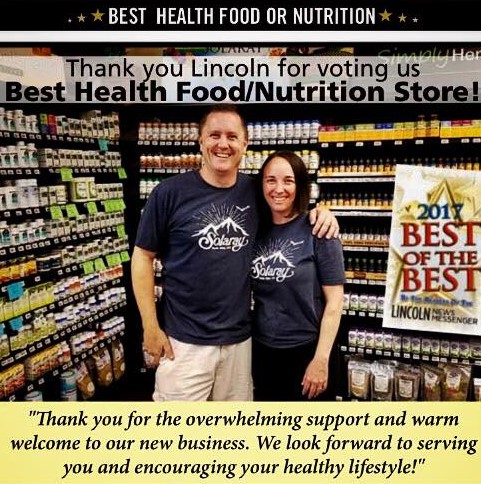Are You Or Someone You Know Addicted To Food?
Food addiction can be a serious problem for many people, even though there are also many people who don’t believe it exists as a medical condition.
So why is there so little information on food addiction and what causes this disorder in the first place? Food addiction can lead to a binge eating disorder, which can be just as harmful as anorexia, yet not talked about nearly as much.
Recent studies have shown that, for some people, the same reward and pleasure centers of the brain that are triggered by addictive drugs like cocaine and heroin, are also activated by food, especially highly palatable foods.
If food addiction is something you’re interested in learning more about then this is the blog post for you.
There are roughly three different views on food addiction as of right now.
1. The addictive potential of certain foods, such as those with high levels of carbohydrates or fat, which can qualify food addiction as a substance use disorder.
2. Researchers have not committed enough time and studies to identify a specific substance that triggers addiction, such as the nicotine in cigarettes, in potentially ‘addictive’ foods. This means that eating addiction could be behavioral and not related to a substance.
3. Neither of the above holds scientific weight, and even if they did, diagnosing compulsive eating as a food addiction would not be clinically helpful.
As with addictive drugs, highly palatable foods trigger feel-good brain chemicals such as dopamine.
Once people experience pleasure associated with increased dopamine transmission in the brain’s reward pathway from eating certain foods, they quickly feel the need to eat again.
Food addiction operates similarly to other addictions, which explains why some people can’t control themselves around certain foods no matter how hard they try. Despite not wanting to, they may repeatedly find themselves eating large amounts of unhealthy foods knowing that doing so may cause harm.
Food addicts become dependent upon the “good” feelings that are obtained from consuming certain foods, which often perpetuates a continued need to eat, even when not hungry.
These behaviors generate a vicious cycle. As the food addict continues to overindulge with foods that induce pleasurable feelings, they often get overfull and eat beyond what is required for satiety and normal nutrition.
This can lead to several physical, emotional, and social consequences, such as digestive issues, heart disease, obesity, low-self-esteem, depression, and isolation. A food addict will often re-engage in these destructive behaviors, even amidst undesired consequences, due to the need for induced feelings of pleasure.
Compulsive overeating is a type of behavioral addiction, meaning that someone can become preoccupied with a behavior (such as eating, or gambling, or shopping) that triggers intense pleasure.
People with food addictions lose control over their eating behavior and find themselves spending excessive amounts of time involved with food and overeating or anticipating the emotional effects of compulsive overeating.
Are you or someone you know addicted to food?
To help find out the answer, ask yourself the following questions.
- Have you ever wanted to stop eating and found you just couldn’t?
- Do you constantly think about food or your weight?
- Do you find yourself attempting one diet or food plan after another, with no lasting success?
- Do you binge and then “get rid of the binge” through vomiting, exercise, laxatives, or other forms of purging?
- Do you eat differently in private than you do in front of other people?
- Has a doctor or a family member ever approached you with concern about your eating habits or weight?
- Do you eat large quantities of food at one time (binge)?
- Is your weight problem due to your “nibbling” all day long?
- Do you eat to escape from your feelings?
- Do you eat when you’re not hungry?
- Have you ever discarded food, only to retrieve and eat it later?
- Do you eat in secret?
- Do you fast or severely restrict your food intake?
- Have you ever stolen other people’s food?
- Have you ever hidden food to make sure you will have “enough”?
- Do you feel driven to exercise excessively to control your weight?
- Do you obsessively calculate the calories you’ve burned against the calories you’ve eaten?
- Do you frequently feel guilty or ashamed about what you’ve eaten?
- Are you waiting for your life to begin “when you lose the weight”?
- Do you feel hopeless about your relationship with food?
If you answered yes to at least eight of those questions, there is a high likelihood of food addiction present.
Don’t worry! You’re not alone and there are many steps you can take to be proactive in your food journey.
Here are some steps to take when it comes to beating this addiction:
- Trigger foods – Write down a list of the foods that cause cravings and/or binges. These are the trigger foods to avoid completely.
- Fast food places – Make a list of fast-food places that serve healthy foods and note their healthy options. This may prevent a relapse when hungry and not in the mood to cook.
- What to eat/Meal plan – Think about what foods to eat and have your week planned so that there are not the last-minute poor choices or overthinking about what you are going to eat — preferably choose healthy foods that you like and will look forward to eating.
- Don’t go on a diet – Trying to focus on losing weight or going on a restrictive “diet” will only add stress and anxiety around food, furthering you from help.
- Remember that Food is Fuel – While food can be pleasurable and fun at times, it is designed to fuel our bodies and give us the nutrients that we need to live our best lives! Having the proper view and understanding of the role of food will change everything.
Some argue that recovery from food addiction may be more complicated than recovery from other kinds of addictions.
Alcoholics, for example, can ultimately abstain from drinking alcohol. But people who are addicted to food still need to eat. A nutritionist, psychologist, or doctor who is educated about food addiction may be able to help you break the cycle of compulsive overeating.
There are also a growing number of programs that help people who are addicted to food. Some, like Food Addicts in Recovery Anonymous, are based on the 12-step program that has helped many people addicted to alcohol, drugs, or gambling.
If you deal specifically with Sugar Addiction stop by and chat with us as there are some supplements like Gymnema that can help with your bodies perception and craving for sugar, or you may be dealing with Candida/Yeast imbalance which we can guide you through some ways to handle that as well.
Know that you’re not alone, your struggles with food are nothing you can’t beat and there are many avenues of support that you can turn to when you need help.

p.s. Just in case you are looking for a specific food, supplement, or any other wellness need, reach out to us here at 916-253-9276 and we would be happy to help you find exactly what you are looking for.
We are deeply committed to sharing our knowledge of health and therefore have carefully chosen the products we offer in our store. You’ll find only the highest quality brands and a large selection to choose from so you’re sure to find exactly what you need.
If you can’t make it into the store, we’re always happy to deliver it to you because your health and happiness are our #1 priority!
We would love to get to know you better!
Drop a comment below and let us know more about you!


